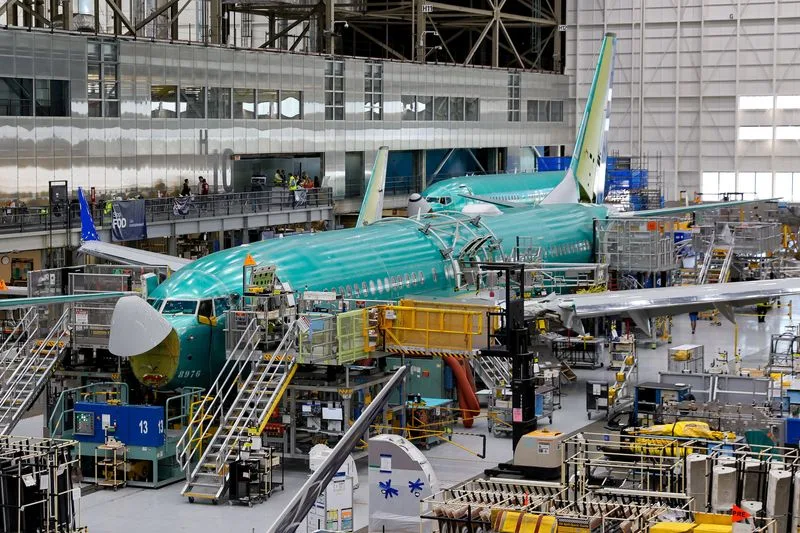Boeing announced plans on Tuesday to raise up to $35 billion through a combination of stock and debt offerings, as well as a $10 billion credit agreement with major lenders. The move comes as the aerospace giant grapples with a series of financial and operational challenges, including a costly labor strike, production slowdowns, and looming regulatory issues.
The company’s cash-raising efforts are aimed at stabilizing its finances amid concerns that its credit ratings, which are currently just one notch above junk, could be downgraded. Analysts estimate that Boeing needs between $10 billion and $15 billion to maintain these ratings.
Boeing’s Financial Struggles
Boeing has faced significant turbulence in 2024, beginning with an incident in January when a door panel blew off a 737 MAX jet mid-air. Since then, the company has been under regulatory scrutiny, which has slowed production, and its CEO has departed. Adding to the turmoil, 33,000 union workers went on strike in September, further compounding the company’s financial difficulties. The strike alone is estimated to be costing Boeing approximately $1 billion per month.
To offset these mounting costs, Boeing also announced plans to cut 17,000 jobs. The company has reported three straight quarters of negative cash flow, raising concerns about its ability to manage its debt load and continue operations without a credit rating downgrade.
Credit Rating at Risk
Credit rating agencies S&P Global and Fitch have both issued warnings about Boeing’s financial health, signaling the potential for a downgrade. However, both agencies acknowledged that Boeing’s recent moves to raise capital could help the company retain its investment-grade status.
“The supplemental credit facility also seems like a sensible precaution,” said S&P Global’s Ben Tsocanos.
Despite these efforts, some analysts remain skeptical about Boeing’s ability to secure the necessary funding. Nick Cunningham, an analyst with Agency Partners, expressed doubts over the breadth of the stock and debt offerings, suggesting that banks may be struggling to attract investors. Cunningham suspended his recommendation for Boeing shares as a result.
Impact of the Strike and Production Challenges
Boeing’s current financial situation has been exacerbated by the ongoing strike in the U.S. Pacific Northwest, which has delayed negotiations over a new contract with the Machinists union. Talks have become increasingly tense, and U.S. Acting Labor Secretary Julie Su met with both sides in Seattle on Monday in an attempt to resolve the deadlock.
In addition to the strike, Boeing is dealing with a regulator-imposed cap on production of its 737 MAX jets, following the January incident involving the mid-air cabin-panel blowout. The company’s jet deliveries have also suffered, with 33 jets delivered in September, down from 40 in August. This slowdown puts Boeing even further behind its European rival, Airbus, in the delivery race.
Looking Ahead: Boeing’s Path to Recovery
Boeing’s $35 billion funding plan includes a $10 billion credit facility, arranged by major banks including Bank of America, Citibank, Goldman Sachs, and JPMorgan, which has not yet been drawn upon. Boeing stated that these measures provide liquidity options over a three-year period, offering some flexibility as the company navigates its financial recovery.
Emirates Airlines President Tim Clark was the first major industry figure to publicly express concerns about Boeing’s long-term survival. He warned that without a rights issue, Boeing could face a credit downgrade and even the possibility of Chapter 11 bankruptcy.
Boeing has $11.5 billion in debt maturing through early 2026 and is also committed to issuing $4.7 billion in stock to acquire Spirit AeroSystems. With cash reserves of $10.89 billion as of June 30, Boeing’s financial future remains uncertain as it seeks to resolve both labor and regulatory challenges while maintaining investor confidence.





